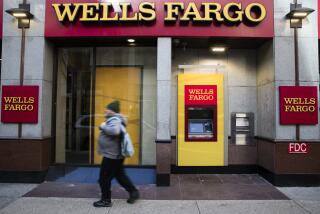Bond Issues Jump, but Will Investors Bite?
- Share via
As U.S. companies emerged Tuesday with plans to sell more than $12 billion of new bonds, some analysts started to worry about how long cash-flush investors will demonstrate an appetite for them.
At least a dozen companies, led by the finance arm of General Motors Corp. and poultry giant Tyson Foods Inc., are planning bond sales, following the traditional two-week pre-Labor Day lull. Food companies ConAgra Foods Inc. and Sara Lee Corp. are among others planning to issue debt.
September is usually a big month for companies raising money via bond issues, and many analysts expect companies to sell about $40 billion of bonds, if not more, to take advantage of relatively low interest rates and available investor cash.
But signs the sluggish U.S. economy may be reviving, together with investors’ desire to protect the big gains they earned earlier in the year in corporate bonds, could lead to a chilly reception for some of these companies.
So far in 2001, investment-grade corporate bonds--those rated Baa3 or higher by Moody’s Investors Service and BBB-minus or higher by Standard & Poor’s--have returned 9.6% on average, including interest and price changes, according to Merrill Lynch & Co.
No other class of bonds has done better, and the return easily beats the 5.8% average return from safer U.S. Treasuries.
But corporate bonds had a rotten day Tuesday. The National Assn. of Purchasing Management reported surprising strength in U.S. manufacturing activity in August.
Treasury bond prices sank and corporate bond prices sank more, because the report suggests the Federal Reserve may not need to cut interest rates for an eighth time this year. A drop in a bond’s price drives up its yield.
Another key piece of economic data comes out Friday, when the Labor Department reports on U.S. payrolls in August.
“We’re going to wait to see confirmation, . . . but this morning’s NAPM numbers are making people question whether an October [Fed rate cut] is still on the table,” said Gregory Staples, head of the public bond department for Mony Life Insurance Co. in New York.
For now, there are plenty of bonds out there.
Tyson, based in Springdale, Ark., is selling as much as $2.5 billion in bonds to refinance debt it took on to buy beef and pork processor IBP Inc.
Omaha-based ConAgra is planning a $1.5-billion debt issue, after selling $1.65 billion in bonds a year ago.
The biggest sale for now is a $3-billion offering from General Motors Acceptance Corp., GM’s finance arm.
GMAC is widely understood to be selling its bonds to refinance short-term debt, despite threats of rating downgrades by leading credit agencies.
Ford Motor Co.’s finance arm is in a similar position. Both auto makers face shrinking market share and profit margins, so investors are concerned about heavier debt loads.
Still, familiar companies such as these should find a receptive audience, said Peter Petas, managing director at CreditSights Inc., a New York-based fixed-income research firm. Others may be less fortunate if investors get pickier.
“You’ll see large, frequent borrowers hit the market, take the money and run,” Petas said. “Then, as is typical in these cycles, you’ll get less frequent borrowers and borrowers far down the credit curve.”
But if investors begin to demand higher yields on bonds, supply could quickly drop off because more companies probably would decide the cost of capital is too high. This would come after an eight-month period that saw a record $399 billion raised through corporate bond issues, according to Thomson Financial Securities Data of Newark, N.J.
More to Read
Inside the business of entertainment
The Wide Shot brings you news, analysis and insights on everything from streaming wars to production — and what it all means for the future.
You may occasionally receive promotional content from the Los Angeles Times.










